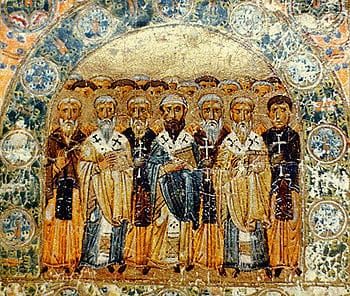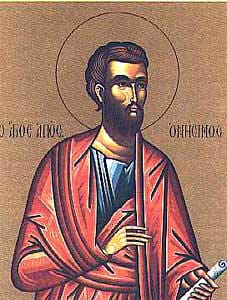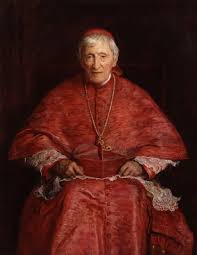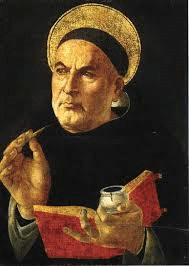In investigating how we come to Faith, we discussed how the key step in the journey from natural faith to supernatural faith is to have “reasons to believe” that God has authentically spoken. These external proofs of Revelation, when combined with the internal light of the Holy Spirit, help to formulate the content of faith. The Church calls these reasons to believe motives of credibility (CCC 56) and enumerates three of them: prophecy, miracles and growth. Only the Catholic Church bears all three of these stamps of authenticity, proving that she is the voice of God. But these motives of credibility can also be applied in the opposite direction; not only are they signs of authenticity, but their lack is a sign that a given religion is false.
St. Francis de Sales, in his book The Catholic Controversy puts these motives of credibility to the test in refuting the authenticity of the Protestant Reformers. He points out that throughout Salvation History, every ambassador for God carried with him a “letter of recommendation”. This letter of recommendation comes in two forms, mediate and immediate.

The mediate minister is the one who is commissioned by an already established authority and sent by one of God’s authentic ministers. Scripture is replete with examples, but one will suffice to demonstrate the point. When Elijah, who was God’s anointed, appointed Elisha as his successor, the latter became the authentic prophet and the voice of God among men through the imposition of his mantle (c.f. 1 Kings 19:16-21). Likewise, Acts of the Apostles shows numerous cases in which the Apostles (or those who have been given authority by them) sending ministers out to speak in the name of the Church, the voice of God among men.
Someone who is sent immediately is one who received direct divine commission. Again, we find numerous Scriptural examples including the aforementioned Elijah and the Apostles themselves. In contrast to the mediate ministers, these immediate ministers must always carry with them two marks: prophecy and miracles. They must be both prophesied and prophecy themselves. The Apostles once again are the example par excellence through both being prophesied and prophesying themselves. They also performed miracles making their message believable. The interior movement of the Holy Spirit was met with external signs directing them to the true voice of God.
Applying the Principle to the Protestant Reformation
Once this principle is established, St. Francis de Sales applies it to the Protestant Reformers to see if they are truly God’s ambassadors. It is readily apparent that the Reformers were not mediately appointed. They rejected the authority of the Church and therefore to argue that they were sent by the Church would be nonsensical. But what is often argued is that the Protestant Revolt was one from below and that it was the rank and file laity that sent them. This viewpoint is historically debatable given that it was mostly imposed by princes, but even if we concede that it is true, then it is most certainly not Scriptural.
Hebrews 7:7, “unquestionably, a lesser person is blessed by a greater” carries with it a corollary and that is that a lesser person cannot bless a greater person. What this means practically is that the laity cannot ordain an ambassador for God. Even if some of them were priests, sharing only in Apostolic Succession through their Bishop, they lacked the proper authority to act directly against those Bishops. To say that Luther, Zwingli, and Calvin were anointed by the people would contradict a fundamental tenet that the Reformers all had in common: sola scriptura. Therefore, we cannot say that these same Reformers were mediately appointed.
This leaves us with the immediate option, namely, that they were appointed by God directly. These reformers were obviously not the first in the history of the Church to make claims against the Church. Heretics almost continuous made similar claims and were all rejected in part because they lacked these two signs of credibility. So then, if the Protestant Reformers were truly on a mission from God, then we should expect both prophecy and miracles. Unfortunately, we find neither as Luther and company never performed any miracles nor were they either subjects or objects of prophecy.
This certainly deals a blow to their credibility and should have been enough for many people to reject them out of hand. But they countered that they were not changing anything , but restoring it. Anyone who has studied the history of the Church knows that this is a rather dubious claim at best. But what is indubitable is that they did change one thing: the Priesthood.
Changing the Priesthood
We find two Scriptural examples of a change in the Priestly Office. First, we have the Levitical Priesthood. Moses instituted the Levitical priesthood through his brother Aaron (c.f. Ex 28) as a replacement for the original priesthood of the firstborn son of every family. This changing of the Priesthood was accompanied by a changing of the law given on Sinai. The members of the tribe of Levi were set aside to offer sacrifices for the people, despite the fact that the entire people of God was a “kingdom of priests” (Ex 19:6).
Jesus, the new High Priest, instituted a new priesthood. It was prophesied that there would be a new priesthood. This new priesthood would cease to be a hereditary Levitical priesthood but would be of the order of Melchizedek. This priesthood will never be replaced (c.f. Ps. 110). To make the point clear, the Book of Hebrews explicitly lays out how Jesus’ priesthood was of the order of Melchizedek and was the replacement for the Levitical priesthood (c.f. Hebrews 7:11-28). Its sacrifice (a priest by definition must have a sacrifice) is bread and wine (c.f. Gn 14:18-20). Jesus anointed the Apostles as priests and commanded them to continue this sacrifice perpetually at the Last Supper.
Looked at in this light, we can clearly see then that the Protestant Revolutionaries instituted a new priesthood. Gone was the Melchizedekian priesthood to be replaced by “the priesthood of all believers.” Yet, unlike Moses and Jesus, they did not carry the divine letters of credit with them. The Melchizedekian priesthood was to last forever so these “reformers” were not prophesied anywhere within the divine deposit of faith. Nor did they perform any miracles. Thus, we must conclude that they were operating under, at best, their own inspiration.
Lacking the first two motives of credibility would be incriminating enough, but they also lack the third as well. The reformers sowed disunity rather than unity, leading to over 200 different “churches” or denominations (the number 33,000 has been greatly exaggerated ). Unity is evidence of God-protected and inspired institution while disunity is evidence of a man-made institution. That is why the unity or “one-ness” of the Church remains a mark distinguishing it from all other ecclesial communities.
St. Francis de Sales spent much of his life battling the Protestant reformers, even being exiled from his See of Geneva. But because of his grasp of Scripture, a love for the Church and a love for those who left the Church, he convinced many Protestants that he had the truth on his side. We could all learn a valuable lesson from him.


















